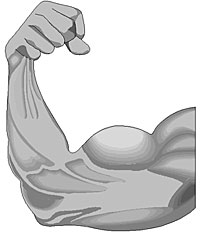|
Trained Incapacity: The Anatomy of Favorite Muscles and Skills
By strengthening one set of muscles or skills at the expense of other muscles or skills, you may become muscle-bound (or an "expert") and enfeebled or atrophied (a non-expert or novice) in other sets of muscles or skills. This is one disadvantage of over-specialization.
 |
Thus, exercising a favorite muscle, or developing "expertise" (like addiction to one's specialty), may lead to what Thorstein Veblen called "trained incapacity": an extreme technical competence in deep and very narrow specialties that is accompanied by a pervasive decline in practical skills and broad-band competencies. Scientists, engineers, attorneys, physicians, and many other experts present vivid examples daily in our career management practice.
This deep and narrow expertise may not have great survival value if the marketplace does not need or value it. If we neglect exercising others skills and muscles that are needed to 'get the job done', trained incapacity may have negative survival value.
More importantly, you may no longer enjoy exercising that favorite muscle or skill. You may yearn to exercise others, but may not know where to start. |
Your first step is to identify clearly your strongest skills, your most enjoyable skills, and your most transferable skills (Phase I). Your second step is to discover where in the real job marketplace your most enjoyable skills actually exist already(Phase II). Your third step is to develop and implement a plan or strategy to insert those skills into the job marketplace (Phase III).
|



